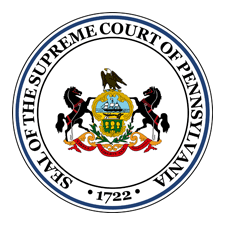In 17-Year-Old Class Action, $6.3 Million Award Against Kia Reinstated
In a case that’s been going on since 2001, a New Jersey appeals court has reinstated a $6.3 million class action award against Kia Motors America and ordered that fees be awarded to the firm that represented the more than 8,000 plaintiffs in the case.
By Michael Booth July 18, 2018 at 06:34 PM
In a case that’s been going on since 2001, a New Jersey appeals court has reinstated a $6.3 million class action award against Kia Motors America and ordered that fees be awarded to the firm that represented the more than 8,000 plaintiffs in the case.
The litigation concerns the braking system of the Kia Sephia, discontinued in 2001.
A three-judge Appellate Division panel in a published decision Wednesday in Little v. Kia Motors America reversed a Union County trial judge’s 2008 order overturning the jury’s verdict and the award of $681,850 in counsel fees and costs, and decertifying the class.
Judge Ellen Koblitz, joined by Judges Thomas Manahan and Karen Suter, said a trial court will have to reach a new determination on counsel fees, as well as prejudgment interest.
“We hope to get this case cleared,” said the plaintiffs’ attorney, Michael Donovan of the Donovan Litigation Group in Bala Cynwyd, Pennsylvania. “The opinion is thorough and is consistent with current law.”
The case has had a torturous history, repeatedly moving from the trial courts to the Appellate Division.
The plaintiffs charged that the Kia Sephia’s braking system didn’t adequately dissipate heat, causing pads and rotors to wear down at 10,000-mile intervals. In Kia’s own tests, the heat of the braking system was measured at 950 degrees, the plaintiffs alleged. Kia’s warranty didn’t cover brake components.
The plaintiffs were those who purchased the Sephia between 1997 and 2000—about 8,450 in number. Each stands to receive about $750 from the jury award, representing the estimated cost of repairing the brakes.
A jury in 2008 found that the automobile manufacturer breached its express and implied warranty to purchasers of the cars and violated the terms of the 1975 Magnuson-Moss Warranty Act, which governs warranties on consumer products and allows prevailing plaintiffs to recover reasonable costs of suit, including attorney fees. However, the jury held that Kia did not violate New Jersey’s Consumer Fraud Act, and that there were no diminished values to the cars due to the faulty brakes.
The Union County verdict followed a $5.6 million verdict in a suit against Kia in Pennsylvania in 2005. A 47-state settlement that same year provided only $60,000 for the class and exempted Florida, Pennsylvania and New Jersey.
According to the court, following the Union County 2008 verdict, a judge, finding that individual issues predominated the case, issued a judgment notwithstanding the verdict later that year, decertified the class, and ordered a new trial on the repair damages. A motion to recertify the class was granted, and the jury’s finding of no diminution in value was reversed, in 2011, but the Appellate Division overturned that ruling the next year. A special master appointed on remand in 2013 found that only a fraction of the plaintiffs proved damages. The special master recommended damages of about $46,000. Then, in 2015, plaintiff lawyers sought more than $6 million in fees and $481,850 in costs, though only $200,000 in fees were awarded, plus the costs sought.
The case again returned to the Appellate Division, which on Wednesday reached back to 2008 and reversed the granting of judgment notwithstanding the verdict.
“The trial judge’s concern that the jury award would provide a windfall to class members who did not actually spend $750 in additional repair costs was inconsistent with principles of contract damages, and resulted in an unjust windfall to defendant, which produced no evidence to defeat [the] estimated damages,” Koblitz wrote for the panel.
Donovan said he now expects the attorney fee figure he seeks to be higher. “It will have to be recalculated, in addition to prejudgment interest,” Donovan said.
Kia retained Roberto Rivera-Soto, a former New Jersey Supreme Court justice now with the Cherry Hill office of Ballard Spahr. He was not available for comment on the decision.







 Michael D. Donovan Selected to Pennsylvania Super Lawyers 2004-2023
Michael D. Donovan Selected to Pennsylvania Super Lawyers 2004-2023